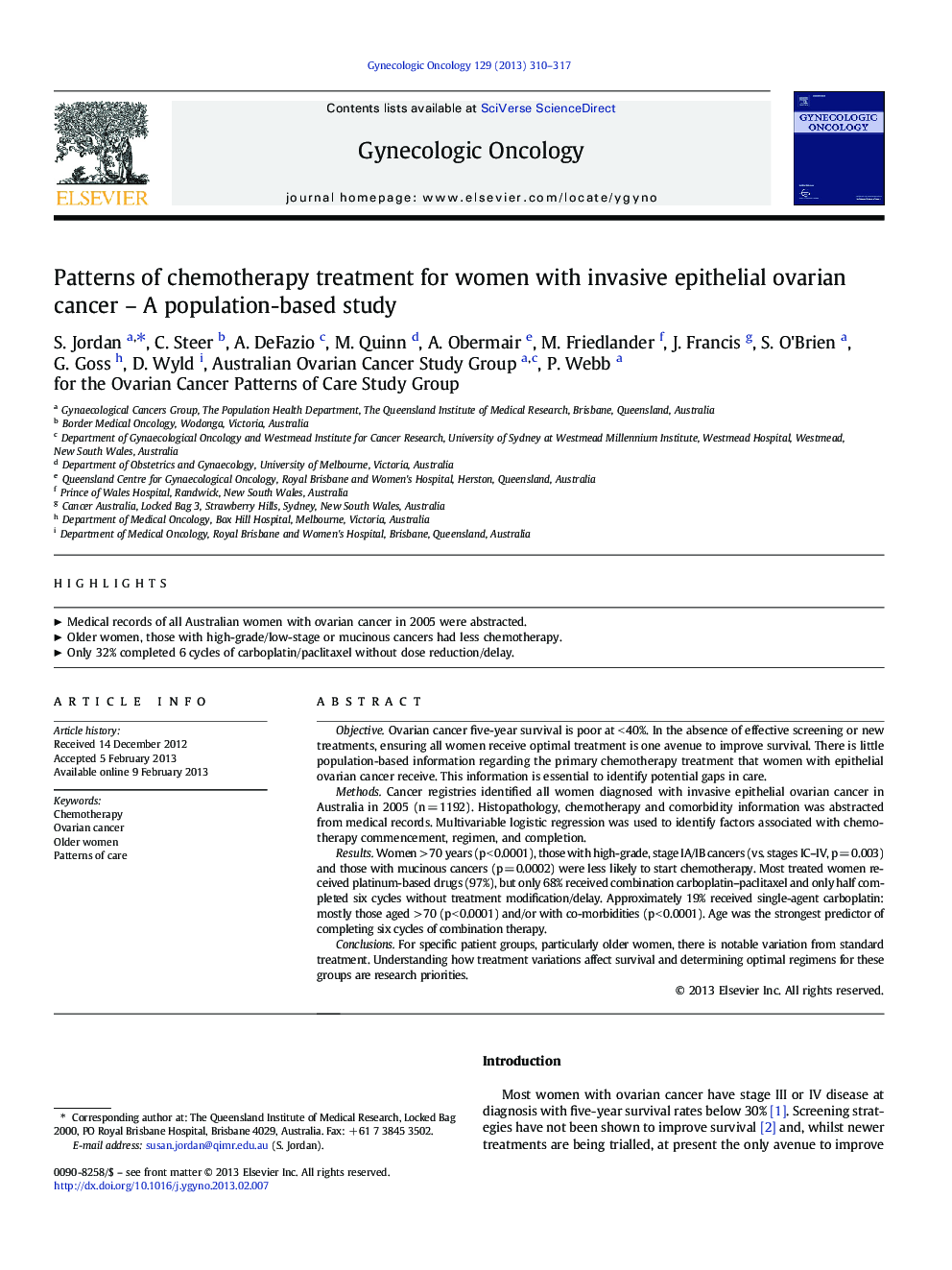| Article ID | Journal | Published Year | Pages | File Type |
|---|---|---|---|---|
| 3943545 | Gynecologic Oncology | 2013 | 8 Pages |
ObjectiveOvarian cancer five-year survival is poor at < 40%. In the absence of effective screening or new treatments, ensuring all women receive optimal treatment is one avenue to improve survival. There is little population-based information regarding the primary chemotherapy treatment that women with epithelial ovarian cancer receive. This information is essential to identify potential gaps in care.MethodsCancer registries identified all women diagnosed with invasive epithelial ovarian cancer in Australia in 2005 (n = 1192). Histopathology, chemotherapy and comorbidity information was abstracted from medical records. Multivariable logistic regression was used to identify factors associated with chemotherapy commencement, regimen, and completion.ResultsWomen > 70 years (p < 0.0001), those with high-grade, stage IA/IB cancers (vs. stages IC–IV, p = 0.003) and those with mucinous cancers (p = 0.0002) were less likely to start chemotherapy. Most treated women received platinum-based drugs (97%), but only 68% received combination carboplatin–paclitaxel and only half completed six cycles without treatment modification/delay. Approximately 19% received single-agent carboplatin: mostly those aged > 70 (p < 0.0001) and/or with co-morbidities (p < 0.0001). Age was the strongest predictor of completing six cycles of combination therapy.ConclusionsFor specific patient groups, particularly older women, there is notable variation from standard treatment. Understanding how treatment variations affect survival and determining optimal regimens for these groups are research priorities.
► Medical records of all Australian women with ovarian cancer in 2005 were abstracted. ► Older women, those with high-grade/low-stage or mucinous cancers had less chemotherapy. ► Only 32% completed 6 cycles of carboplatin/paclitaxel without dose reduction/delay.
